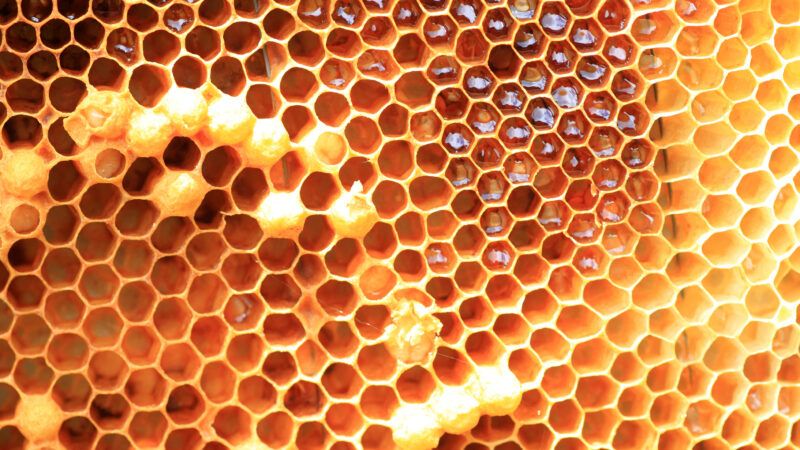Home Business Lawsuit Argues People Have a Natural Right To Keep Bees on Their Property
Ellen Finnerty wanted to make and sell honey. The town of Ottawa, Kansas, says that's illegal.

A Kansas woman is suing her city government over a ban on her home beekeeping business.
Yesterday, Ellen Finnerty filed a lawsuit in the District Court of Franklin County, Kansas, against Ottawa, Kansas, arguing that the city's prohibition on home-based businesses that involve "animal care" and activities outside the actual dwelling unit violates the Kansas Constitution's protections of "life, liberty, and property."
"Ellen has a right to earn an honest living," says Sam MacRoberts, litigation director for the Kansas Justice Institute, a public interest law firm representing Finnerty. "She has a natural and fundamental right to use her own backyard in a reasonable way that's not impacting anyone else."
For years, Finnerty, a machine operator, has dreamed of growing produce for sale in her backyard. Adding a few beehives would help pollinate her garden and allow her to produce honey to sell at local farmers' markets.
Last year, she started planting apple trees, berry bushes, and more. She also took classes on beekeeping at a local community college.
Trouble started when she inquired with local planning officials about what permits she might need to install her beehives. Ottawa's city planner told her that the zoning code's prohibition on home businesses featuring "animal care of any type."
Because bees are animals (and fish, in some states) and gardens are outside, that would mean Finnerty's garden and honey business was effectively prohibited.
Finnerty's petition notes that she would have been within her rights to raise a garden or keep bees for her private enjoyment on her property. They just couldn't be connected to commercial use.
This is a common feature of home-based business laws, whereby otherwise legal activities become illegal once money changes hands. In Nashville, you can have a home-based recording studio and have people over to record music, but those people can't pay you for the privilege.
This feature often leaves home-based business laws open to legal challenges from stymied entrepreneurs who argue there's no rational reason for restricting otherwise lawful activities. Government restrictions on activities have to be connected to the actual impacts of those activities.
Finnerty's complaint contends that home beekeeping and gardening cause no harm or negative impacts to surrounding property owners. Her business isn't generating waste, pollution, noise, additional traffic, or on-street parking. She also argues the kinds of bees she would be keeping are "docile" and rarely sting unless their hive is threatened.
Nevertheless, if Finnerty were to run her unauthorized home business, she'd be at risk of daily penalties of $500 fines and six months in jail.
"The government is not exercising their police powers in a reasonable way. This is a complete prohibition. It's not as though the city has taken the time to carefully draft an ordinance," says MacRoberts.
He hopes the city of Ottawa will understand that its flat ban on animal-handling home businesses is a stinging injustice and agree to change the ordinance.
Rent Free is a weekly newsletter from Christian Britschgi on urbanism and the fight for less regulation, more housing, more property rights, and more freedom in America's cities.


Show Comments (79)